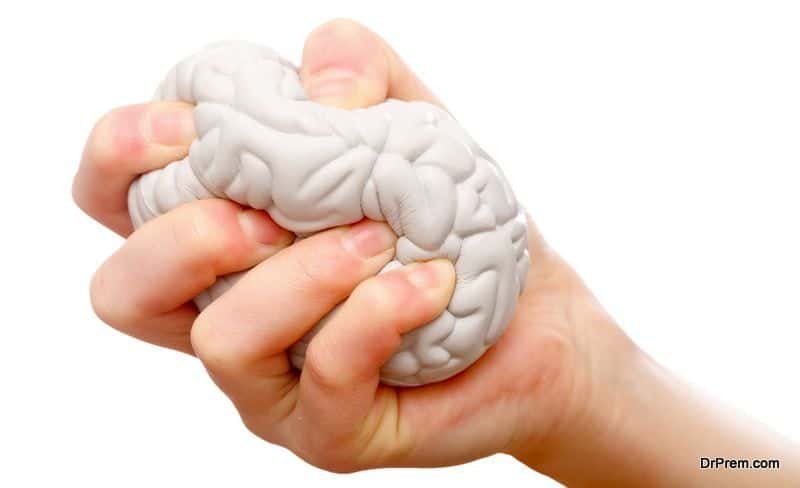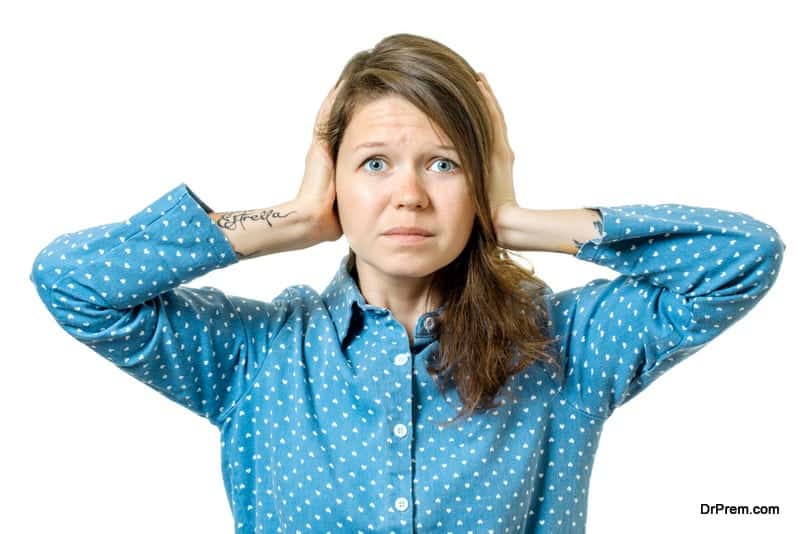Can notes of Bach and Beethoven help in treating your depression? All of us would unequivocally agree that listening to music imparts a pleasant feeling that lifts our mood. Modern researches have proved that music therapy for depression is highly effective.
Imagine yourself in a difficult situation. When a pleasant note or music reaches your ear from anywhere, your attention quickly shifts towards it. The benefits of music therapy in healing sick body and soul have been realized since the dawn of civilization.
It has been recorded that music of Thales cured plague affected population in Sparta around B.C. Today, we are exposed to a variety of music. But how often do we consider musical healing for natural anxiety relief or to treat depression? It may work better than anti-depressants.
Origin of modern music therapy:
It was in 1940s after the World War II, the returning soldiers suffering from PTSD (Post Traumatic Stress Disorder) were given institutionalized music therapy. The musical healing was clearly evident from the soldiers’ physical and emotional response to the melodies and hymns which was not achievable through conventional treatments.
Today, the American Music Therapy Association (AMTA) is the only largest music therapy association in the world helping more than 5000 music therapists in 30 countries.
Can Music Therapy help in natural anxiety relief?
Music has the ability to shift your attention from painful and uncomfortable conditions to pleasant and soothing ones. It adopts a number of pathways to reduce stress and anxiety by suppressing the sympathetic nervous system.
Music triggers the release of dopamine and endorphins and blocks the pain pathways enhancing the overall feel of wellbeing, which can be utilized as an effective therapy for depression.
In music therapy, the therapist applies music to address specific emotional, psychological, social, and physical needs of an individual. Within a therapeutic setting, the individuals listen or create music to express themselves in different non-verbal manners.
The melody, rhythm, and harmony of the music help in stimulating the senses of the individual enabling an improved emotional response. It results in calming of the mind with a reduced heartbeat and slowed respiratory function. Music therapy needs to be customized according to the patient’s requirements and normally involve various musical combinations.
Evidence on music therapy for depression:
A study published in the British Journal of Psychiatrist in 2011 revealed the beneficial impact of music therapy for depression. A group of Finnish researchers studied 79 people aged between 18 and 50 suffering from depression. Forty-six persons were given the standardized care that included 5-6 psychotherapy sessions, counseling, and antidepressant medications.
The remaining 33 persons along with the standard care were also exposed to 20 bi-weekly music therapy sessions each of 60-minute duration. Selected musical instruments were used in the sessions.
Baseline depression scores were measured after 3 and 6 months respectively. Persons receiving musical therapy along with the standard care showed marked improvement in depression symptoms than those only under the standardized care.
Earlier research on music therapy for depression:
In a previous research published in 2009 by mentalhealth.org.nz, the effectiveness of music therapy for depression has been indicated.Five small group studies comprising of 19-68 participants were carried out with people of different age groups during the years 1992, 1994, 1995, 1997, and 1999. All the participants were diagnosed with clinical depression of varying intensities.
Three studies were mainly focused on older adults within the age group of 60-85 years. Two studies included adolescents and senior adults within the age group of 14-62 years. All the study groups were given different types of music therapies with varied duration of sessions. Different forms of standardized care were also provided in all the five studies.
Four studies (1992, 1994, 1999 and 1997) reported a greater reduction in depression symptoms among the participants, while the study of 1995 reported no change in mental state of the participants compared to those receiving only randomized standard care.
The effectiveness of music therapy for depression from the above studies may not sound convincing enough as these involved small groups compared to the large-scale clinical trials conducted to confirm the efficacy of any therapy.
But these small studies indicate one strong point – music therapy can cause an improvement of mood beyond the standardized care even if it has a short-term effect. Nowadays, music therapy is highly recommended for geriatric care as it helps in improving social, psychological, intellectual, and cognitive functions of the elderly population.
How is music therapy applied to treat depression symptoms?
Symptoms of depression manifest in the losing interest or pleasure in anything. All activities and happenings around you seem to be meaningless. To come out of this, you can adopt the following steps of music therapy under the guidance of a therapist.
By live or played music:
- You can create meaningful music which would help in expressing yourself better. For example, creating a song allows you to free your emotions and experiences helping you understand the meaning of life.
- Music can help you relate yourself in a different way. The notes, emotion, rhythm, and tone help in improved collaboration between you and your surroundings. The music therapist helps you connect deeply with your emotions in a therapeutic setting, thereby helping you rediscover yourself.
- Exercise is a great way to get relief from depression. If you add movements to the music, it will be more effective. Dancing, mild body movements, foot tapping, and clapping are the joint physical and mental reaction to music which helps you connect your body and mind better. Similarly, beating a drum, playing a guitar, violin and other musical instruments can contribute to treating your depression.
- Singing lifts your moods, thoughts and expression, and promotes relaxation. It doesn’t matter whether you are a good or bad singer. Singing the words of your choice or humming is good to reduce your depression.
- Learning an instrument is also another effective music therapy for depression. It engages your mind and thoughts in a constructive manner. You get encouraged to create something pleasant that connects your emotions. Regular practice of musical instrument also has a better effect.
Listening to music:
This is perhaps the easiest and most preferred way to apply music therapy for depression. A therapeutic setting will no doubt be more effective than the self-trial. Different types of music can affect mood differently from person to person.
For example, classical music can make a person feel calm and relaxed while rock music may cause discomfort to that person. The same rock music can add zeal to somebody’s mood. Listening to music that makes you feel good will always have a positive effect on your mood.
You can listen to music to enhance other activities like drawing, painting, meditation or dancing. Choose a suitable music to go well with the activity.
Other health benefits of music therapy:
Apart from treating depression, music therapy is known to have other health benefits as well:
- Enhances healing process in patients before and after critical surgeries and other treatment procedures.
- Helps in management of Parkinson’s and Alzheimer’s Diseases
- Reduces symptoms of mental disorders and schizophrenia
- Improves communication and ways of self-expression
- Helps in treating chronic pain
- Reduces stress levels in coronary heart patients by making them feel better
- Reduces stress, anxiety, and depression during pregnancy














